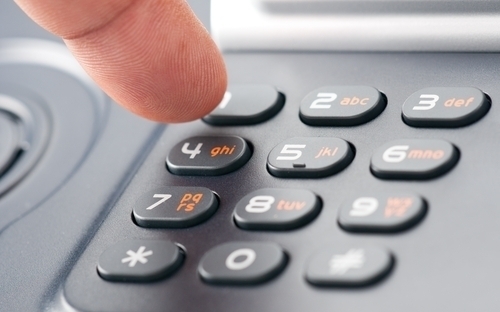How to verify deaths remotely during the Covid-19 pandemic
Leicester, Leicestershire and Rutland LMC has drawn up protocols for death verification, in conjunction with local senior coroners Professor Catherine Mason and Mr T H Kirkman, with endorsement from Leicester, Leicestershire and Rutland City CCGs.
1. Introduction
- There is no requirement in English law for a general medical practitioner (GP) or any other specific person to verify death, but it has become custom and practice for this to happen.
- It is important that people faced with bereavement are well cared for and supported following a death.
- General practice has recently moved to a significant use of remote consultations by telephone or video.
- The introduction of an agreed process for Remote Verification of Death (RVOD) will enable GPs and trained HCPs (tHCPs) to oversee the timely and safe verification of death.
- This protocol applies if there has been a request for a GP or other tHCP to verify an expected and natural death. It creates a process to allow persons other that GPs or tHCPs to assist in the recognition that death has occurred and mitigate attendance of other health or emergency service resources to the scene.
2. Definitions
Verification: the establishment of the fact of death (deciding whether someone has died). This has nothing to do with the issuing of the Medical Certificate of Cause of Death (MCCD) by a doctor, or the Certificate of Registration of Death issued by a registrar.
Remote Verification of Death: a process to establish the fact of death by a GP or tHCP overseeing a competent adult who is (or was) present with the deceased.
3. Scope
- This protocol applies to the verification of death of any adult person aged 18 or over who dies within Leicester, Leicestershire or Rutland (LLR) of a natural and expected death.
- Verification by a GP, or other trained Health Care Professional (Including paramedic, or nurse), overseeing another person who is present with the deceased patient.
- This protocol DOES NOT cover the process of issuing of the Medical Certificate of Cause of Death (MCCD) by a doctor, or the Certificate of Registration of Death issued by a registrar
4. Process
- On being advised of the death of a person within LLR, a general medical practitioner (GP) or other trained health care professional (tHCP) will discuss with the person reporting the death and establish:
a) Whether the death is either expected, or if the patient /representative had previously indicated they did not want to be resuscitated (ReSPECT or DNACPR form). IF NEITHER OF THESE APPLIES THE CALLER SHOULD BE ADVISED TO COMMENCE CPR IF APPROPRIATE AND /OR TO TELEPHONE 999
b) Identity of the deceased person
c) Whether anyone currently present or who could be present within a reasonable time would be willing to assist in RVOD.
- Persons suitable to assist RVOD will be a competent adult who is willing to participate,are already present in the place the death has occurred or arrive soon afterwards, and may include: a) Next of kin, family member, friend b) Religious or community leader c) Police Officer d) Funeral Director e) Carer
- If there is someone willing to undertake RVOD, then the GP/tHCP will talk the person through a series of questions to verify death and record the information (See Annex One).
- In preference the RVOD will be provided by video link, but where this technology is not available, it can be provided by telephone.
- For a nursing or care home where there has been prior agreement and training, RVOD can be provided by completion and sending a form by email to the deceased patient’s registered general practice (See Annex 2).
- If there is no-one willing to assist in RVOD, then verification should normally be provided by a GP or other tHCP.
- The completed RVOD Form shall be: a) scanned into, or retained in the deceased patient’s general practice electronic record b) kept for the same time period as the deceased patient record c) provided to the coroner at their request
- Once the GP/tHCP has confirmed verification, the reporting person should be advised that they can arrange removal of the body.
- The GP/tHCP who has completed the verification informs the deceased patient’s usual GP or registered practice to commence the process of issuing the MCCD if possible.
- Summary of process is provided by attached Flow Chart (Annex Three)
5. Training
- Specific training is not needed for any GP
- Training for a HCP to oversee RVOD should be provided by their employer.
- Training for staff of care or nursing homes to complete a RVOD form can be provided by a GP.
6. Endorsement
This document has been formally endorsed by: Professor C Mason (Senior Coroner, Leicester and South Leicestershire) Mr T H Kirkman (Senior Coroner, North Leicestershire and Rutland) Leicester, Leicestershire and Rutland City Clinical Commissioning Groups
7. Review
This protocol will be reviewed: a) July 2020, October 2020, January 2021 and April 2021, or b) On publication of any pertinent professional national guidance, or c) Following any pertinent change in legislation.
Source: Leicester, Leicestershire and Rutland LMC, LLR protocol for remote verification of death [accessed 28 April]
Pulse July survey
Take our July 2025 survey to potentially win £1.000 worth of tokens












